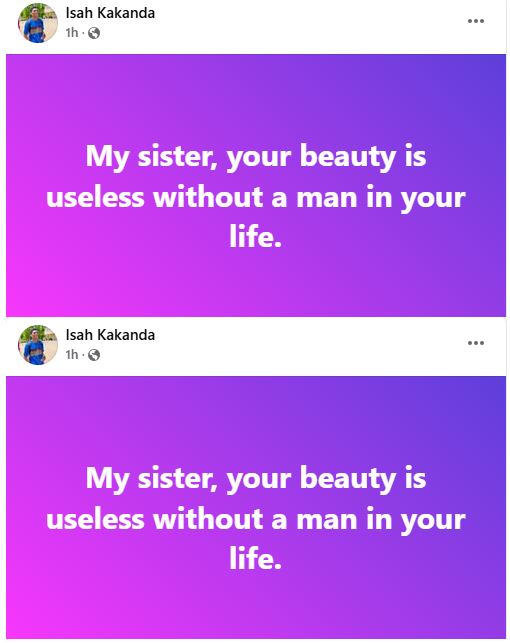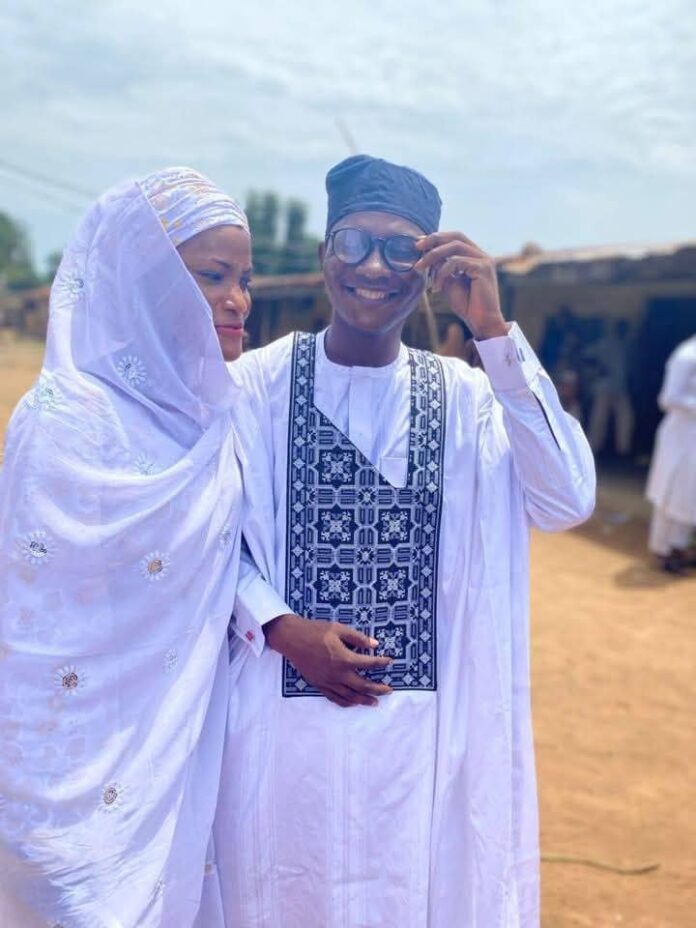A newly married Nigerian man, Isah Kakanda, has sparked a firestorm of debate and controversy across social media platforms with a provocative statement regarding women and their relationships. Taking to his Facebook page, Kakanda, who reportedly just tied the knot last weekend, asserted a highly contentious view: that a woman’s beauty is utterly “useless” if she is single.

His bold declaration, succinctly put as: “My sister, your beauty is useless without a man in your life,” has quickly gone viral, drawing strong reactions from various quarters. The statement touches on deeply ingrained societal norms, expectations, and the ongoing discourse surrounding women’s autonomy and value in patriarchal societies.
Kakanda’s viewpoint, particularly coming from a newlywed, suggests a perspective where a woman’s worth or ultimate fulfillment is inextricably linked to her marital status and the presence of a male partner. This notion often clashes sharply with modern feminist ideals and the growing emphasis on individual achievement, self-worth, and happiness independent of romantic relationships.
Expectedly, his post has generated a torrent of responses. Many social media users have condemned his statement as outdated, misogynistic, and dismissive of women’s inherent value. Critics argue that such views perpetuate harmful stereotypes and pressure women into relationships regardless of their personal desires or aspirations. They contend that a woman’s beauty, intelligence, talents, and contributions are valid and valuable whether or not she is in a relationship.
Conversely, some individuals, likely those holding more traditional beliefs, might tacitly or openly agree with Kakanda’s sentiment, viewing marriage as the primary and most desirable path for women. This divergence in opinion underscores the complex and often polarized conversations surrounding gender roles, marriage, and female identity in contemporary Nigerian society. The debate initiated by Isah Kakanda’s post is a vivid illustration of the ongoing cultural shifts and ideological battles playing out in the digital public square, highlighting the persistent tension between traditional values and evolving perspectives on gender equality and individual freedom.


